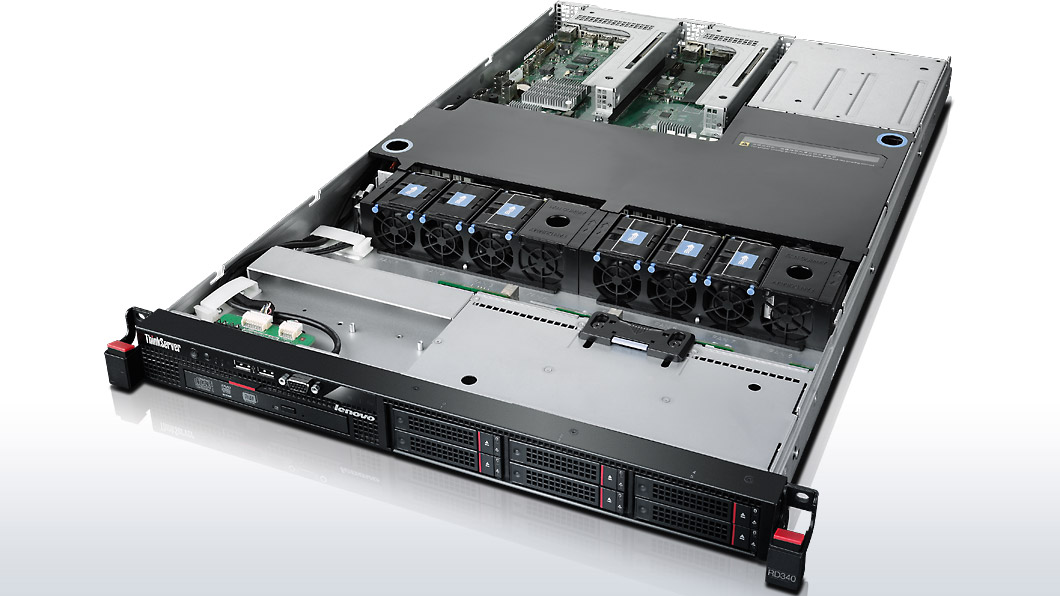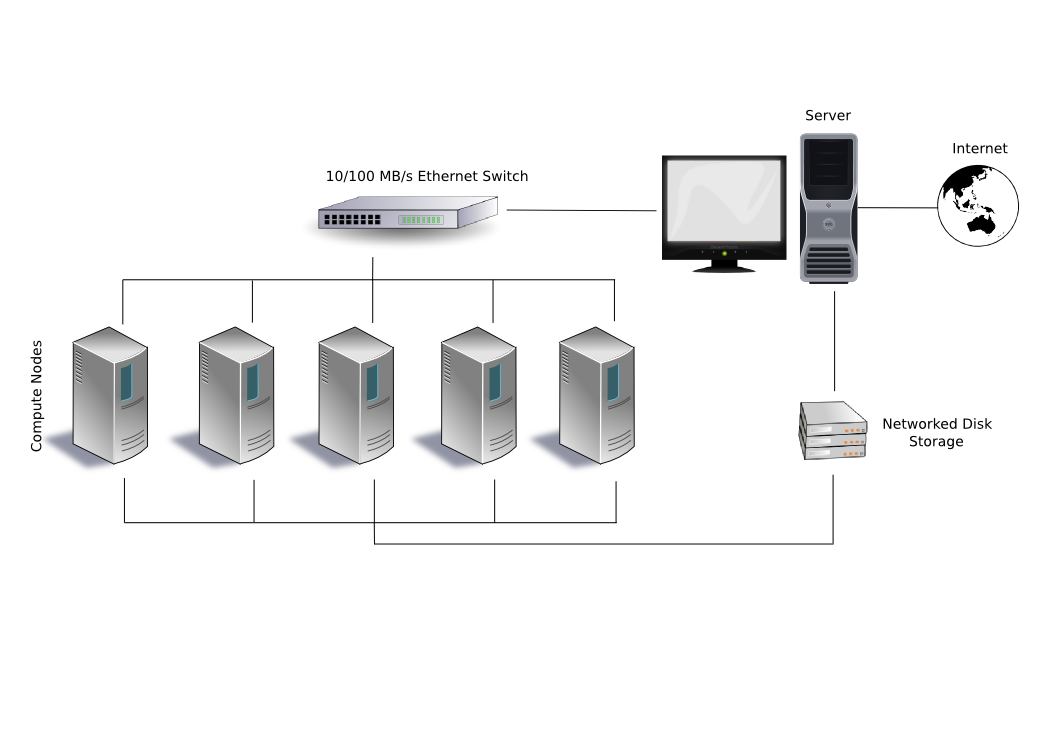What is High Performance and High Throughput computing?
High Performance Computing (HPC) and High Throughput Computing (HTC) are alternatively known as “supercomputing”, and can be useful for a large number of types of work.
Used efficiently, supercomputers let you get more done faster.
Applications

What is a cluster?
Supercomputers are computer clusters. Wikipedia defines a computer cluster as:
consists of a set of loosely or tightly connected computers that work together so that, in many respects, they can be viewed as a single system.
Computer clusters generally consist of a series of connected computing nodes (e.g. personal computers used as servers), a software layer that sits on top of the nodes (“clustering middleware”) allows the user to treat the cluster as one large cohesive computing unit.
A rackable server

The University of Edinburgh developed Wee Archie a suitcase-sized supercomputer, constructed using Raspberry Pi 2s, to explain what a supercomputer is.
More information, including a video, about Wee Archie can be viewed at:
Beowulf cluster
An example of a computer cluster configuration is the Beowulf system. In this system the application programs only interact with the “Master”, a specific computer handling the scheduling and management of the computational nodes, and never see the computational nodes.
An example Beowulf configuration (Public Domain):
